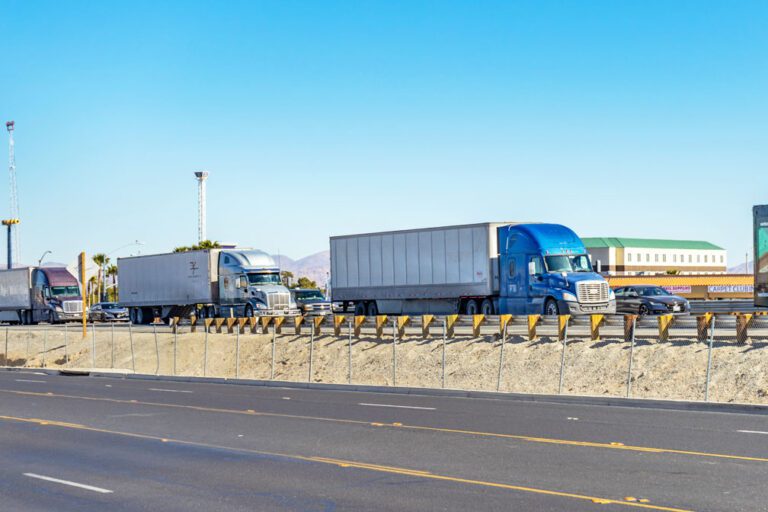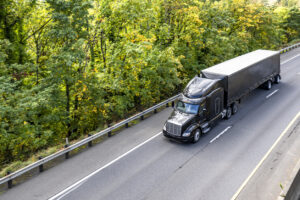SACRAMENTO — Heavy-duty truck and engine manufacturers and environmental regulations officials in California have announced an agreement on emissions rules designed to give companies greater flexibility to meet the state’s strict emissions requirements.
Officials with the Truck and Engine Manufacturers Association (EMA) worked with the California Air Resources Board (CARB) on the measure.
The Clean Truck Partnership, which includes Cummins Inc., Daimler Truck North America, Ford Motor Co., General Motors Co., Hino Motors Limited Inc., Isuzu Technical Center of America Inc., Navistar Inc., PACCAR Inc., Stellantis N.V., the Truck and Engine Manufacturers Association and Volvo Group North America “marks a commitment from the companies to meet California’s vehicle standards that will require the sale and adoption of zero-emissions technology in the state, regardless of whether any other entity challenges California’s authority to set more stringent emissions standards under the federal Clean Air Act,” a CARB news release stated.
In turn, CARB has agreed to work collaboratively with manufacturers to provide reasonable lead time to meet CARB’s requirements and before imposing new regulations and to support the development of necessary zero emissions vehicle infrastructure.
“The unprecedented collaboration between California regulators and truck manufacturers marks a new era in our zero-emission future, where we work together to address the needs of both the trucking industry and the Californians who deserve to breathe clean air,” said CARB Chair Liane Randolph. “This agreement makes it clear that we have shared goals to tackle pollution and climate change and to ensure the success of the truck owners and operators who provide critical services to California’s economy.”
EMA President Jed Mandel said, “This agreement reaffirms EMA’s and its members’ longstanding commitment to reducing emissions and to a zero-emissions commercial vehicle future and it demonstrates how EMA and CARB can work together to achieve shared clean air goals. Through this agreement, we have aligned on a single nationwide nitrogen oxide emissions standard, secured needed lead time and stability for manufacturers, and agreed on regulatory changes that will ensure continued availability of commercial vehicles. We look forward to continuing to work constructively with CARB on future regulatory and infrastructure efforts designed to support a successful transition to ZEVs.”
American Trucking Association (ATA) President and CEO Chris Spear said the ATA has “long advocated for a single, national standard that respects and preserves interstate commerce. However, the trucking industry shouldn’t be strong armed by the government into an agreement with such terms.
“Our association represents motor carrier members — the paying customers who will inherit the costs of this agreement — and we will not roll over nor relinquish our right to litigate with any party when our interests are threatened,” Spear added. “It is clear that America has lost its way when the government bullies the private sector to succumb to unachievable timelines, targets and technologies.”
At the Truckload Carriers Association, President Jim Ward called the deal an “ill-suited compromise.”
“As we have continued to point out, the issues of reliability, affordability and achievability of these regulations must remain at the forefront of these conversations,” Ward continued. “The trucking industry continues to be in the crosshairs of communicating all of these to a customer base that won’t entirely understand the ramifications of such rhetoric filled rules. Concerns of equipment reliability, infrastructure uncertainty and high cost of these trucks will reveal themselves as we move closer to these deadlines and our government officials will once again be forced to explain the shortcomings of the nation’s supply chain when now is the actual time to resolve these matters to develop environmentally friendly trucks that would continue to deliver this nation.”
The terms of the Clean Truck Partnership include:
- CARB will align with EPA’s 2027 regulations for nitrogen oxide emissions. CARB also will modify elements of the 2024 NOx emission regulations for which manufacturers will provide offsets as necessary to maintain California’s emission targets.
- CARB commits to providing no less than four years lead time and at least three years of regulatory stability before imposing new requirements.
- Truck manufacturers commit to meeting CARB’s zero-emission and criteria pollutant regulations in the state regardless of any attempts by other entities to challenge California’s authority.
The Clean Truck Partnership comes as California prepares for implementation of rules that put in place a phased-in transition toward 100% sale and use of zero-emissions technology for medium- and heavy-duty vehicles under CARB’s Advanced Clean Trucks and Advanced Clean Fleets rule by 2045.
In March, the Biden administration approved California’s waiver under the federal Clean Air Act that allows the state to become the first in the world to require zero-emissions technology for trucks. By working together, California air quality regulators and truck manufacturers will ensure that the technology, infrastructure and supply will be available to meet the state’s ambitious clean air goals.
The Trucker News Staff produces engaging content for not only TheTrucker.com, but also The Trucker Newspaper, which has been serving the trucking industry for more than 30 years. With a focus on drivers, the Trucker News Staff aims to provide relevant, objective content pertaining to the trucking segment of the transportation industry. The Trucker News Staff is based in Little Rock, Arkansas.








